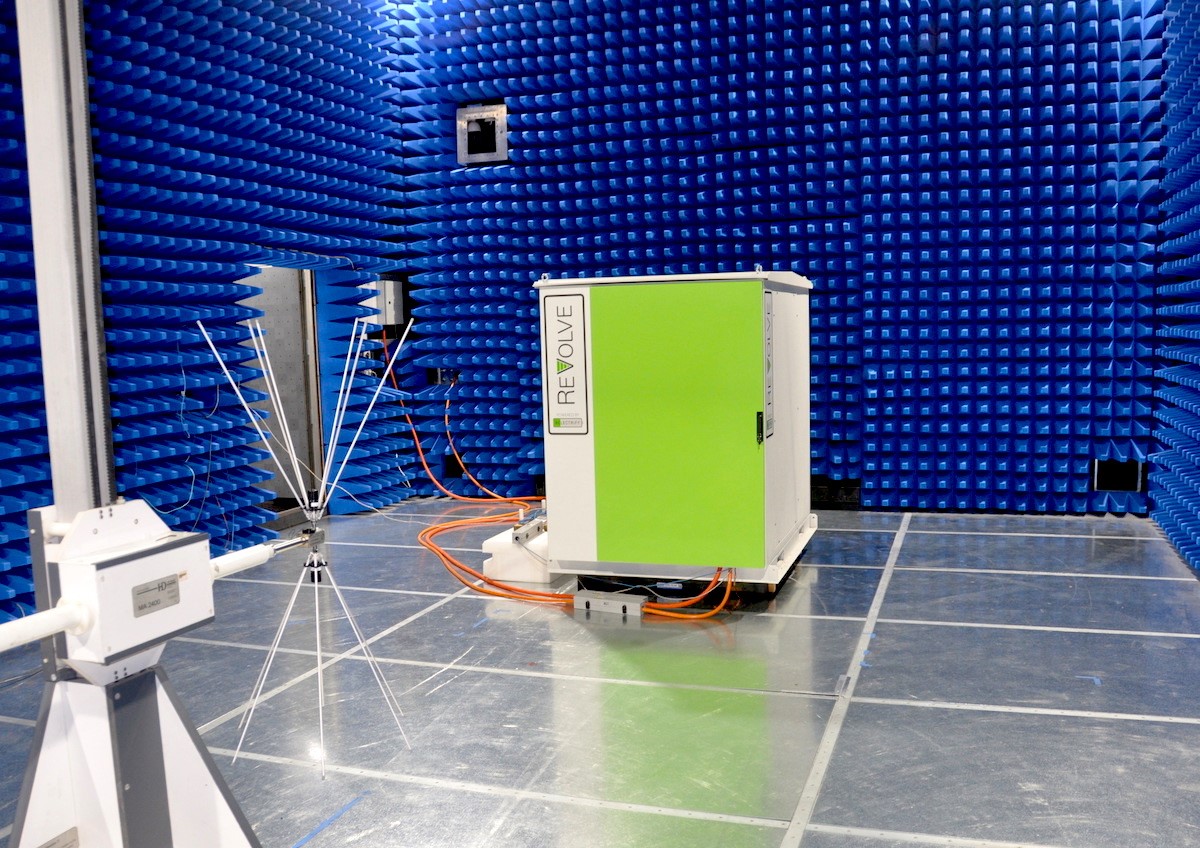Relectrify is claiming a world first after the Switzerland-based International Electrotechnical Commission (IEC) announced that the company’s 36 kW/120 kWh modular battery energy storage system has been certified as compliant with international technology standards and specific grid-connection codes.
The ReVolve battery energy storage product, which uses second-life Nissan Leaf electric vehicle (EV) battery packs, features Relectrify’s patented cell-level control technology, which combines an integrated battery management system (BMS) and inverter hardware solution. The hybrid system replaces conventional BMS and inverters with a single electronic solution that allows for the control of individual cells to generate grid-compliant alternating current (AC) directly from a battery pack.
Melbourne-based Relectrify said the IEC certification marks the first time a commercial and industrial-scale energy storage product using cell-level control has been certified to the internationally recognised IEC standards. The company said it is also the first stationary battery energy storage product using repurposed second-life EV batteries to be certified for on-grid deployment in Australia.
Relectrify Chief Executive Officer Valentin Muenzel said the certifications prove that the company’s technology can work safely and in accordance with global technology standards, clearing the way for the company to supply the technology for grid interactive operation in the surging European and the United States (US) energy storage markets.
“The ReVolve demonstrates that our BMS+Inverter technology meets performance, safety, and grid compliance needs, supporting the technology’s integration in collaborative projects with leading global battery companies for residential, industrial and grid-scale applications,” said Muenzel.
Relectrify says the combined inverter and battery management technology revolutionizes battery storage, increasing the cycle life of a lithium-ion battery by as much as one-third, and reducing power electronic costs by up to 30% compared to traditional battery systems.
The technology, which can be used in residential, industrial and grid storage systems, with new or second-life batteries, has already been tested in numerous technical pilot projects around the world. Counties Energy Group Chief Strategy and Transformation Officer Moonis Vegdani said the distribution network owner will now expand its rollout of Relectrify’s storage technology to assist it with the integration of distributed energy resources in a safer, less expensive, and time efficient way.
“As an early adopter of Relectrify’s BMS+Inverter technology in a pilot program for a network scale battery system, we are thrilled to see that the Relectrify team has gained certification for grid connection,” he said. “We look forward to bringing this technology to New Zealand this year.”
The IEC certification comes just weeks after Relectrify secured financial backing from a group of major international companies, including the venture capital unit of Japanese automaker Toyota.
This content is protected by copyright and may not be reused. If you want to cooperate with us and would like to reuse some of our content, please contact: editors@pv-magazine.com.




By submitting this form you agree to pv magazine using your data for the purposes of publishing your comment.
Your personal data will only be disclosed or otherwise transmitted to third parties for the purposes of spam filtering or if this is necessary for technical maintenance of the website. Any other transfer to third parties will not take place unless this is justified on the basis of applicable data protection regulations or if pv magazine is legally obliged to do so.
You may revoke this consent at any time with effect for the future, in which case your personal data will be deleted immediately. Otherwise, your data will be deleted if pv magazine has processed your request or the purpose of data storage is fulfilled.
Further information on data privacy can be found in our Data Protection Policy.